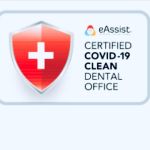
- Understanding Bleeding Gums and Bad Breath
- How Mouthwash Can Help Improve Gum Health and Combat Bad Breath
- Criteria for Choosing the Best Mouthwash
- Popular Mouthwash Ingredients Explained
- Real-Life Examples and User Experiences
- Professional Advice and Recommendations
- Finding the Right Products with Dentistry Toothtruth
1. Understanding Bleeding Gums and Bad Breath
Bleeding gums and bad breath are two common yet often misunderstood oral health issues. Bleeding gums can indicate underlying gum disease such as gingivitis or periodontitis, caused by plaque buildup and inflammation. On the other hand, bad breath, medically known as halitosis, frequently accompanies these conditions but can also arise from dry mouth, poor oral hygiene, or dietary factors.
Many people experience occasional gum bleeding when brushing or flossing, but persistent bleeding is a warning sign that should not be ignored. Similarly, chronic bad breath affects social interactions and self-confidence. Understanding the connection between these symptoms is key to addressing them effectively.
1.1 The Role of Gum Health in Oral Hygiene
Healthy gums form a protective barrier against bacteria and help maintain tooth stability. When gums bleed, it means this barrier is compromised, allowing bacteria to flourish and produce foul odors. Therefore, improving gum health is fundamental to tackling both bleeding and bad breath simultaneously.
1.2 Common Causes Beyond Oral Hygiene
While poor brushing habits are a main culprit, factors like vitamin deficiencies, smoking, hormonal changes, and systemic diseases can also contribute to bleeding gums and halitosis. This complexity underscores the importance of a comprehensive approach, combining lifestyle changes with targeted oral care products.
2. How Mouthwash Can Help Improve Gum Health and Combat Bad Breath
Mouthwash is more than just a breath freshener. The right formulation can reach areas that brushing and flossing might miss, reducing harmful bacteria and soothing inflamed gums. For people struggling with bleeding gums and bad breath, using an effective mouthwash can accelerate healing and maintain long-term oral health.
2.1 Antibacterial Action
Many mouthwashes contain antibacterial agents that directly reduce plaque bacteria, the primary cause of gum inflammation and odor. This helps stop bleeding and fights the root cause of bad breath.
2.2 Anti-inflammatory and Healing Properties
Certain ingredients like aloe vera, chamomile, and essential oils provide calming effects on sensitive gum tissue, promoting faster recovery and reducing discomfort.
2.3 Moisturizing Benefits
Some mouthwashes are designed to alleviate dry mouth, a condition that worsens bad breath. Hydrated tissues create a healthier oral environment and support natural saliva flow, essential for cleansing the mouth.
3. Criteria for Choosing the Best Mouthwash
Not all mouthwashes are created equal, especially when targeting bleeding gums and bad breath. Choosing the right product involves careful consideration of ingredients, safety, and effectiveness.
3.1 Active Ingredients for Gum Health
Look for mouthwashes that include antiseptic agents like chlorhexidine, cetylpyridinium chloride, or essential oils known for their antibacterial effects. Ingredients such as fluoride also help strengthen enamel, indirectly supporting gum health.
3.2 Alcohol Content and Sensitivity
Alcohol-based mouthwashes can cause dryness and irritation, worsening gum sensitivity for some users. Alcohol-free formulas are often preferable for individuals with bleeding gums or sensitive mouths.
3.3 Taste and User Comfort
A pleasant taste encourages consistent use, which is crucial for seeing improvements. Products with natural flavors and soothing herbal extracts are often more appealing and gentler on the gums.
4. Popular Mouthwash Ingredients Explained
Understanding the function of common mouthwash ingredients helps users make informed decisions tailored to their needs.
4.1 Chlorhexidine
Considered the gold standard for managing gum disease, chlorhexidine offers strong antibacterial properties but is generally recommended for short-term use due to potential side effects like staining.
4.2 Essential Oils
Oils such as eucalyptol, thymol, and menthol provide natural antiseptic and anti-inflammatory benefits. They reduce plaque and freshen breath without harsh chemicals.
4.3 Fluoride
While primarily for cavity prevention, fluoride also aids in maintaining overall oral health, supporting gum tissue resilience.
4.4 Aloe Vera and Herbal Extracts
These ingredients soothe inflamed gums and promote healing, making them popular in mouthwashes designed for sensitive or bleeding gums.
5. Real-Life Examples and User Experiences
Many users share inspiring stories of how switching to the best mouthwash for bleeding gums and bad breath has transformed their oral health.
5.1 Case Study: Sarah’s Journey to Healthy Gums
Sarah, a 34-year-old teacher, struggled with persistent gum bleeding and embarrassment from bad breath. After trying various products, she found significant improvement using a natural, alcohol-free mouthwash with essential oils and aloe vera. Within weeks, her gums stopped bleeding, and her confidence returned.
5.2 Community Feedback on Forums
On popular dental forums, users frequently recommend mouthwashes with cetylpyridinium chloride for balancing effectiveness and gentleness. Many report fresher breath lasting hours and less gum sensitivity after consistent use.
6. Professional Advice and Recommendations
Dental professionals emphasize that mouthwash should complement—not replace—brushing and flossing. Regular dental checkups are critical to diagnose any underlying issues causing bleeding gums and halitosis.
6.1 Personalized Care Plans
Experts advise tailoring oral hygiene routines to individual conditions. For example, a patient with advanced gum disease might require prescription-strength mouthwash combined with professional treatments.
6.2 Avoiding Overuse and Side Effects
Excessive use of strong antiseptic mouthwashes can disrupt oral microbiome balance. Dentists recommend following product guidelines and switching formulas if irritation occurs.
7. Finding the Right Products with Dentistry Toothtruth
Choosing the most suitable mouthwash and oral care products can be overwhelming given the variety on the market. Dentistry Toothtruth offers expert-curated selections focused on quality and efficacy for those facing bleeding gums and bad breath challenges.
7.1 Why Trust Dentistry Toothtruth?
With a commitment to transparent reviews and professional recommendations, Dentistry Toothtruth helps users navigate options to find tailored solutions that address specific needs. Whether you seek natural formulas, clinical-strength rinses, or comprehensive oral care kits, their resources make informed decisions easier.
7.2 Additional Support and Resources
Beyond product recommendations, Dentistry Toothtruth provides valuable tips on oral hygiene techniques, lifestyle changes, and when to seek professional care, ensuring a holistic approach to oral health.







 Aubin Orthodontics4.0 (38 review)
Aubin Orthodontics4.0 (38 review) Serenity Dental Care4.0 (246 review)
Serenity Dental Care4.0 (246 review) Innovate Dental4.0 (142 review)
Innovate Dental4.0 (142 review) Barrington Road Dental Care4.0 (66 review)
Barrington Road Dental Care4.0 (66 review) Dr. Michael Kirk4.0 (8 review)
Dr. Michael Kirk4.0 (8 review) Tri-City Smiles Dentistry and Orthodontics4.0 (180 review)
Tri-City Smiles Dentistry and Orthodontics4.0 (180 review) The Importance of Oral Health Education During Pregnancy for a Healthy Pregnancy
The Importance of Oral Health Education During Pregnancy for a Healthy Pregnancy Best Tips for Brushing Your Teeth Properly for Healthy Gums: Essential Techniques for Oral Health
Best Tips for Brushing Your Teeth Properly for Healthy Gums: Essential Techniques for Oral Health Why Skipping Dental Checkups Can Lead to Bigger Oral Health Problems
Why Skipping Dental Checkups Can Lead to Bigger Oral Health Problems Advantages of Porcelain Dental Restorations
Advantages of Porcelain Dental Restorations How Can Diabetes Cause Tooth and Gum Problems? Preventing and Managing Oral Health Issues
How Can Diabetes Cause Tooth and Gum Problems? Preventing and Managing Oral Health Issues Healthy Habits for Promoting Good Oral Health and Hygiene: Tips for a Healthy Smile
Healthy Habits for Promoting Good Oral Health and Hygiene: Tips for a Healthy Smile